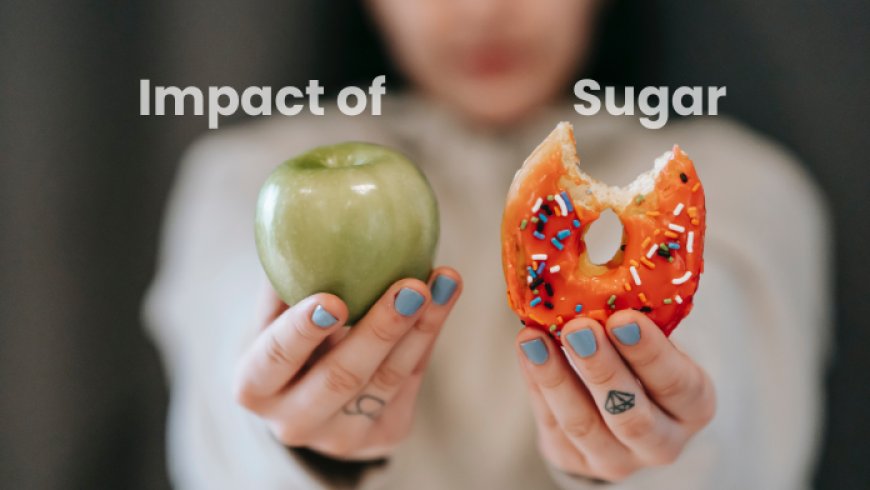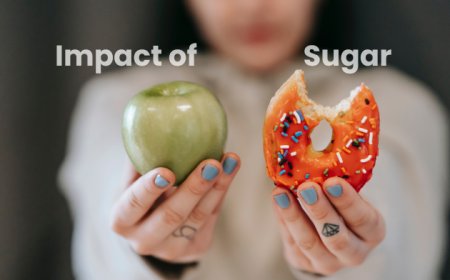The Impact of Sugar on your Health and How to reduce your intake
The Impact of Sugar on your Health and How to reduce your intake

Introduction
Sugar is an integral part of our diets, and its sweet taste is undeniably appealing. From childhood treats to daily indulgences, sugar plays a significant role in our lives. However, excessive sugar consumption can have detrimental effects on our health.
Before delving into impact of sugar on health, it’s important to understand that sugar comes in various forms. The Two primary types are:
1. Natural Sugars:
Found in food like fruits, vegetables, and dairy products. These sugars are accompanied by essential nutrients, fiber, and antioxidants, which mitigate their negative effects on health.
2. Added Sugars:
The impact of Excessive Sugar Consumption
1. Weight Gain:
One of the most immediate and obvious effects of excess sugar consumption is weight gain. High sugar intake leads to and increase in calories, and the excess calories are stored as fat, especially around the abdominal area.
2. Type 2 Diabetes:
Excessive sugar intake can lead to insulin resistance, a precursor to Type 2 Diabetes. The pancreas must produce more insulin to regulate blood sugar levels, and over time, it may fail to keep up, resulting in diabetes.
3. Heart Health:
Sugar has a direct link to heart health. High sugar consumption is associates with a n increased risk of heart disease, as it can raise blood pressure, cause inflammation, and lead to the accumulation of fat in the liver.
4. Dental Problems:
Sugar is a leading cause of tooth decay. Bacteria in the mouth feed on sugar, producing acids that erode tooth enamel, leading to cavities and gum disease.
5. Energy and Mood Swings:
Sugary foods cause rapid spikes and crashes in blood sugar levels, leading to energy slumps and mood swings. This can affect concentration, productivity, and overall well-being.
6. Increased Risk of Obesity:
Excessive sugar consumption is a major contribution to the obesity epidemic. The empty calories from sugary foods do not provide satiety, leading to overeating and subsequent weight gain.
How to Reduce your Sugar Intake
1. Read food labels:
Always check the nutritional labels on packaged foods. Look for added sugars in various forms (e.g. sucrose, high fructose corn syrup) and aim to choose products with little or no added sugar.
2. Choose Natural Sweeteners:
Use Natural sweeteners like honey, maple syrup, or agave nectar in moderation. While they are still sugars, they may provide some additional nutrients.
3. Reduce Sugary Beverages:
Soft drinks, energy drinks, and many fruits juices are loaded with a squeeze of fresh citrus.
4. Eat Whole fruits:
5. Cook at Home:
Preparing meals at home allows you to control the ingredients and limit added sugars. Use herbs and spices to flavour your dishes instead of sugar.
6. Educate Yourself:
Learn about the various names and sources of added sugars to make more informed choices when grocery shopping or dining out.
Conclusion
Reducing your sugar intake is a step towards better health and well-being. While it may be challenging at first, making conscious choices to cut down on sugar can have a profound positive impact on your overall health. By understanding the different types of sugar, recognizing the adverse effects of excess consumption, and following practical tips, you can take control of your sugar intake and enjoy a healthier life. Remember, moderation is key, and making small changes gradually can lead to significant improvements in your health.
What's Your Reaction?














































